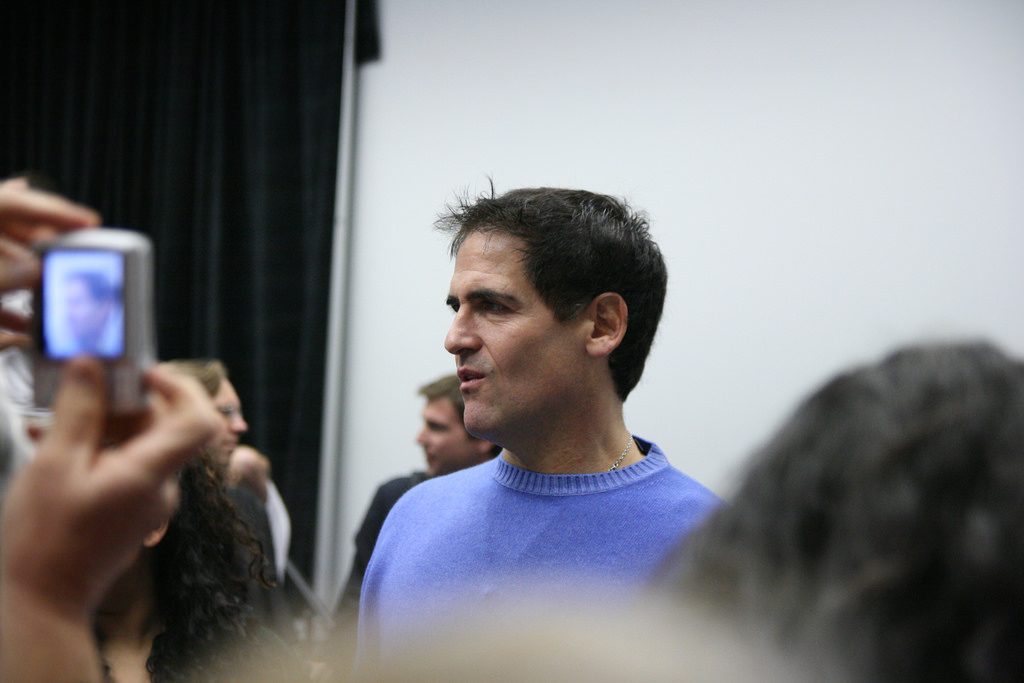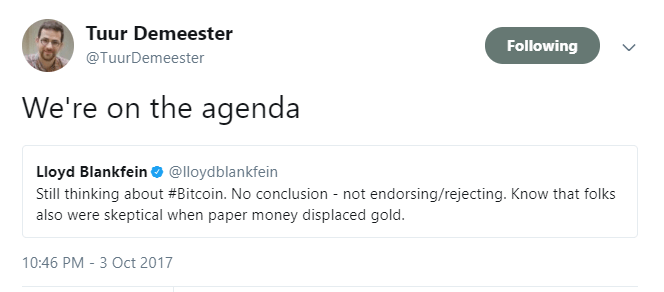Max Keiser Criticizes Mark Cuban: He’s Failed to do His Homework on Bitcoin

Earlier this week, at the Vanity Fair New Establishment Summit in Los Angeles, billionaire investor and the owner of NBA’s Dallas Mavericks Mark Cuban confirmed with Bloomberg’s Emily Chang that he has purchased several bitcoins through the Swedish stock market Nordic Nasdaq.
Cuban also provided a counterargument to JPMorgan CEO Jamie Dimon’s invalid and non-factual criticism towards bitcoin, stating that the concept of intrinsic value does not exist, and that the value of most assets and currencies are based on supply and demand. He stated:
“It is interesting because there are a lot of assets which their value is just based on supply and demand. Most stocks, there is no intrinsic value because you have no true ownership rights and no voting rights. You just have the ability to buy and sell those stocks. Bitcoin is the same thing. Its value is based on supply demand. I have bought some through an ETN based on a Swedish exchange.”
Investors are Starting to Demonstrate Optimism Toward Bitcoin
For the most part, Cuban is accurate in that the value of assets and stocks rely on the market and the demand from investors. Government-issued currencies or fiat money is one example of an asset that does not solely rely on the market, because its value can be manipulated by central entities and financial authorities. Either way, for both assets that solely rely on the market, and currencies that require central entities to adjust their value, the concept of intrinsic value is inapplicable.
In evaluating Cuban’s perception and understanding of the cryptocurrency market and the structure bitcoin, it is important to acknowledge that Cuban had consistently criticized bitcoin since 2014, describing it as a bubble. In June of this year, Cuban said:
“I think it’s in a bubble. I just don’t know when or how much it corrects. When everyone is bragging about how easy they are making dollars, it equates to a bubble. I’m not questioning value. I’m questioning valuation. Anyone anywhere can buy a stock. cryptocurrency is like gold. More religion than asset. Except of course gold makes nice jewelry. Cryptocurrency not so much.”
Since then, Cuban’s viewpoint of the cryptocurrency market has changed significantly, most likely due to the increasing demand from global investors and traders for bitcoin, which simply can no longer be ignored. Last month, Peter Schiff, the CEO and chief global strategist of Euro Pacific Capital, who has continued to criticize bitcoin for many years, revealed that the parent company of his gold company SchiffGold, has integrated bitcoin and started to offer brokerage services for its clients.
When the price of bitcoin surpassed $1,000, many experts and investors described the cryptocurrency as a scam, a fraud, and a bubble. When the price of bitcoin surpassed $2,000, the talks around bitcoin being a fraudulent currency declined and investors like Cuban and Schiff persistently described it as a major bubble, comparing it to the Tulip Mania. When the price of bitcoin surpassed $4,000 and a market cap of $73 billion, the perception toward cryptocurrencies and bitcoin has started to change. Skeptics such as Cuban and Schiff have begun to demonstrate interest towards bitcoin and its structure.
As prominent bitcoin investor and analyst Tuur Demeester wrote after Goldman Sachs CEO Lloyd Blankfein demonstrated optimism toward bitcoin:

Max Keiser: Cuban Hasn’t Done his Homework
Still, bitcoin and finance experts including Max Keiser remain unsatisfied with the lack of understanding of the structure and purpose of bitcoin by investors including Cuban. Earlier todya, Keiser wrote:
“Mark Cuban’s comments on bitcoin show he’s failed to do his homework.”
But, as Demeester noted, the bitcoin and cryptocurrency markets have started to appeal to high profile and large-scale investors in the traditional technology and finance sectors. As the adoption of bitcoin as a digital currency, store of value, and safe haven asset continues to grow at a rapid rate, in the next two years, banks, financial institutions, traders, and investors will have to adopt and embrace bitcoin.
Featured image from Shutterstock.